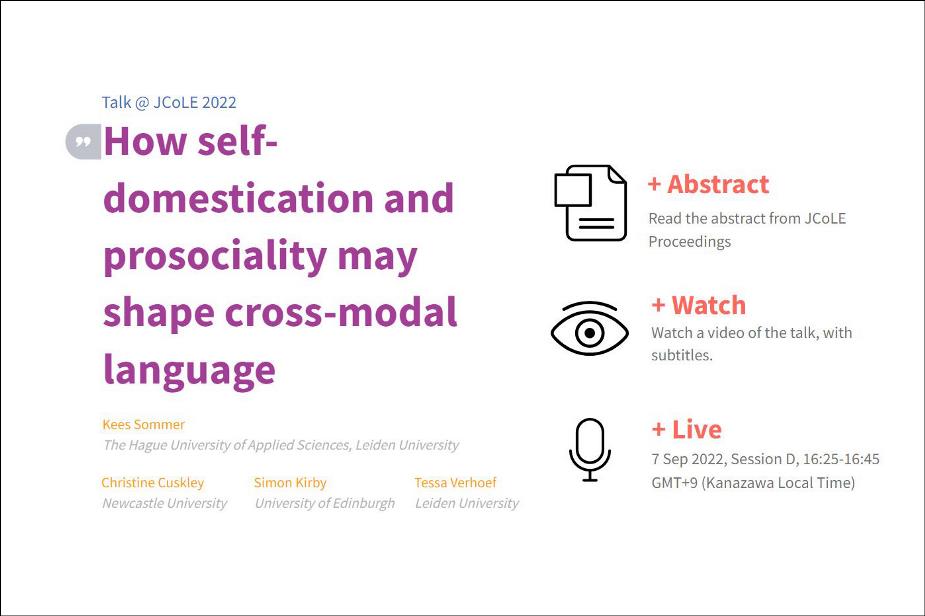Researcher Kees Sommer presents a paper at the Joint Conference on Language Evolution
15 September 2022
On 7 September 2022, the Joint Conference on Language Evolution took place in Japan. Researcher Kees Sommer gave an online presentation about his team's research on the following topic: ‘How self-domestication and...

On 7 September 2022, the Joint Conference on Language Evolution took place in Japan. Researcher Kees Sommer gave an online presentation about his team's research on the following topic: ‘How self-domestication and prosociality may shape cross-modal language’.
This project falls within the field of language evolution, which explores how humans evolved to master language. Our team's research focuses on the human behaviour of associating different senses with each other. For example, we tend to associate higher tones with lighter colours, regardless of culture. We think these associations have been important in the evolution of language, as they enable words to intuitively refer to meanings perceived with other senses. For example, in Dutch words with an ‘aa’ sound often refer to larger objects than words with an ‘ie’ sound. Communication is much easier if you already share these associations.
As a result, humans have evolved to be more social than our ancestors. This caused the neurochemicals that stimulate social behaviour to become more active. And these same chemicals can make people more sensitive to these associations. Our hypothesis is therefore that, as humans evolved to be more social, these neurochemicals became more active and this laid the foundation for these associations. We investigated this hypothesis with a behavioural experiment that yielded some promising and significant results.
Want to learn more? Click here to watch the video or read the abstract.